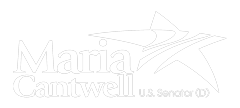Key precedents:
United States v. Nixon (1974)
Morrison v. Olson (1988)
When the Executive branch of our government can no longer be relied upon to put the people of this country ahead of their own personal interests, our country is in a dangerous position. The framers of the Constitution understood this and gave Congress authority to review the actions of the President and apply a variety of remedies, as required.
Thankfully, when Americans realized the extent of Richard Nixon's corruption in the early 70's, these systems and processes worked. In particular, Congress learned that Nixon had been recording his conversations in the Oval Office and they requested the recordings. Nixon refused to provide them, but the Supreme Court ruled in United States v. Nixon that he was obligated to do so. Shortly after surrendering the tapes, which included clear evidence of the President's involvement in wrongdoing, Nixon resigned.
Donald Trump's most recent nominee for the Supreme Court, Judge Brett Kavanaugh, has stated that the Court's unanimous 9-0 opinion in United States v. Nixon was wrongly decided. Perhaps, Judge Kavanaugh speculated, "the tension of the times" led the entire Supreme Court to make the same mistake in unison. Or, perhaps it's Kavanaugh who is mistaken? It is certainly the case that Judge Kavanaugh's deferential views on Presidential authority are way outside of the mainstream.
Now more than ever, we need to fully understand the President's activities. After his disgraceful performance in Helsinki, we have a right to know where his loyalties lie, and we have an obligation to find out. Among all the names on the list of approved judicial candidates provided by the Federalist Society, Judge Kavanaugh stands out as the one most willing to limit Congress' ability to investigate the President and hold him accountable. It seems likely he was selected because of this.
A further example of Judge Kavanaugh's philosophy is provided in remarks he made regarding the Supreme Court decision, Morrison v. Olson (1988). In Morrison v. Olson, the legality of the Independent Counsel Act was challenged, and the court held 7-2 that the Independent Counsel Act was constitutional. Judge Kavanaugh is not a fan of Independent Counsels, because he believes they undermine Executive authority. When asked recently what Supreme Court ruling he would most like to see overturned, Kavanaugh quipped the he would like to "put the final nail" in the coffin of Olson v. Morrison.
Judge Kavanaugh's opinions on executive privilege are clear. He's stated that he does not believe Presidents should not be forced to participate in legal proceedings, such as investigations and lawsuits. Presidents should not be "distracted" by legal obligations during their term of office.
This is probably the worst philosophy we could add to the Supreme Court right now. In the coming months and years, we are likely to see important cases involving Presidential accountability. These cases may relate to the work of Independent Counsels, violations of the Constitution's Emoluments Clause (which prohibits the president from profiting off of the office), the President's obligation to respond to subpoenas, or even whether the President is allowed to pardon himself.
Although legal scholars and ordinary Americans alike find Judge Kavanaugh's opinions on executive authority excessive, his message has played well to an audience of one — the President.
We must not add Brett Kavanaugh to the Court while an Independent Counsel, who has already secured multiple indictments and guilty pleas from the President's closest associates, continues his investigation.
Thanks for reading, please share this article with others who are concerned about the direction of the Supreme Court.
